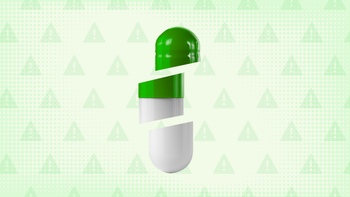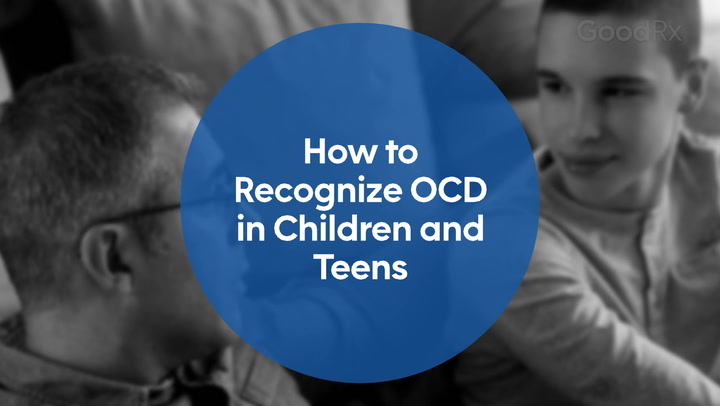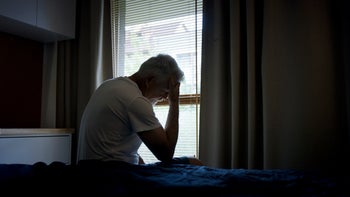
What Is the Best and Most Effective Therapy for OCD?
Key takeaways:
OCD was once considered “untreatable,” but it can be treated effectively with therapy and medication.
Exposure and response prevention (ERP) therapy, a type of cognitive behavioral therapy (CBT), is the gold-standard treatment for OCD.
Acceptance and commitment therapy (ACT) is a newer treatment for OCD that can help reduce symptoms like compulsions.

If you have obsessive-compulsive disorder (OCD), the following situation might sound familiar: You have a distressing intrusive thought you can’t shake. The more time you spend trying to get rid of the thought, the more anxious you feel.
You might even use specific behaviors like repeatedly washing your hands to ease your anxiety. Each time the intrusive thoughts come back, the cycle starts again. Before long, you find yourself spending more and more time using compulsions just to get through the day.
If you’ve had a similar experience, you’re not alone. In the U.S., OCD affects 1.2% of people every year. When left untreated, OCD can greatly impact your daily life and relationships. The good news is treatment can lower your anxiety. And it can help you cope without using time-consuming compulsions.
In this article, we’ll look at the three most effective types of therapy for OCD. We’ll also give you some tips for finding an OCD specialist or talking to your current therapist about adding OCD treatment into your sessions.
Does therapy work for OCD?
Until the 1960s, OCD was considered untreatable. Thankfully, we now know that’s not the case. According to the International OCD Foundation (IOCDF), roughly 7 in 10 people benefit from OCD treatments. Treatment typically includes a combination of psychotherapy and medication.
Below, we focus on three therapies that have the most scientific evidence for decreasing OCD symptoms. These are:
Cognitive behavioral therapy (CBT)
Exposure and response prevention (ERP)
Acceptance and commitment therapy (ACT)
That said, therapy is not a one-size-fits-all experience. There are many types of therapy out there that could help you. Talk to your healthcare provider or a mental health professional to understand your options.
Cognitive behavioral therapy (CBT) for OCD
CBT is a kind of talk therapy. It helps you identify and change thinking patterns and behaviors that negatively impact your emotions. CBT for OCD typically has two parts: cognitive therapy and exposure and response prevention (ERP).
Cognitive therapy teaches you that negative or distressing thoughts may not be as significant as they feel. For example, you may have an unwanted thought about harming a friend. A therapist can help you understand that having this thought doesn’t mean you are going to harm anyone. You'll also learn that you are not a “bad person” for having intrusive thoughts.
ERP aims to lower your anxiety through gradual exposure to the things that cause you distress. In ERP, your therapist coaches you through tolerating fear without using rituals or compulsions to cope (more on this below).
Exposure and response prevention (ERP) therapy for OCD
ERP, a type of CBT, is the gold-standard treatment for OCD. Up to 60% of people who complete ERP treatment have less OCD symptoms over the long-term.
In ERP, a therapist gradually exposes you to thoughts or situations that trigger your anxiety (exposure). Then, they help you resist using a compulsion or ritual to deal with the anxiety you feel (response prevention).
Psychologist and OCD specialist Jon Gooblar emphasizes that ERP is a gradual process. He says you and your therapist will work together to create a “hierarchy” of tasks. You’ll start with things that don’t cause much distress before working up to exposures that feel scarier.
For example, your OCD symptoms may include excessive hand-washing compulsions. An ERP therapist might first coach you through imagining your hands are dirty. Once you feel less anxiety about that, your therapist will have you delay washing your hands. While you wait to wash your hands, you'll use other ways of coping besides compulsions.
Over time, ERP helps you build up a tolerance to distress and anxiety. Then your therapist will coach you through exposures that are closer to what you fear most. The goal is to realize you can tolerate fear and anxiety, which reduces your OCD symptoms.
Acceptance and commitment therapy (ACT) for OCD
ACT is a different type of therapy that can be helpful for OCD. ACT emphasizes that thoughts are temporary — you don’t need to control, change, or avoid them. It can also help you remember that you are not your intrusive thoughts.
In ACT, a therapist will guide you through the process of staying connected to the present moment when distressing thoughts arise. Your therapist will also help you focus on your life goals and values to shift the focus away from compulsions.
ACT is a relatively new treatment for OCD. However, several studies show it can reduce OCD symptoms like anxiety, avoidance, and compulsions. In addition, ACT can be helpful when combined with exposure therapy. It's also a potential alternative if ERP feels too intensive.
What happens if OCD is left untreated?
The severity and type of OCD varies from person to person. Because of this, untreated OCD can look different for everyone who experiences it. In general though, the longer OCD remains untreated, the more distressing it becomes.
There are a lot of reasons someone might not seek treatment for OCD. These can range from thinking their symptoms aren’t “severe enough” to being unsure where to go for help. It can sometimes take people up to 17 years from the time they start having symptoms to get the right treatment.
Many people also find ERP really difficult. Up to 30% of those who start ERP will drop out before finishing treatment. Other therapies — like ACT — can be an alternative option for treating OCD.
When left untreated, Gooblar says OCD compulsions can start to take hours and affect your quality of life. He says in some cases, OCD may even make it hard to leave the house, perform daily tasks, and maintain relationships.
Finding a therapist for OCD
Once you’ve decided to seek OCD treatment, finding a therapist might feel like a daunting task. A great place to start is IOCDF’s provider database. There, you can type in your zip code to find OCD specialists in your area.
Not all therapists have extensive experience working with people with OCD. Asking a potential therapist a few questions can go a long way in getting the care you need. Some questions you might ask include:
Have you worked with clients with OCD before?
Do you use ERP to treat clients with OCD?
Have you been trained in CBT for OCD?
Don’t be discouraged if a provider doesn’t have training in any of these therapies. Marisa Mazza, a clinical psychologist and founder of ChoiceTherapy, recommends asking a potential therapist (or your current therapist) if they would be willing to consult with an OCD specialist or get trained in ERP for your treatment.
Finding individual OCD treatment can be costly. If you’re unable to afford or access therapy in your area, check out IOCDF’s list of support groups. There, you can find free or low-cost groups online or in your community to get help for your OCD symptoms.
The bottom line
OCD is a mental illness that causes anxiety-inducing intrusive thoughts. This leads people to use compulsions to temporarily lessen the anxiety they feel. Therapies like CBT, ERP, and ACT are all effective treatments for people with OCD. They can also be combined with medication. If you believe you are struggling with OCD, talk to your healthcare provider or reach out to an OCD specialist in your area.
Why trust our experts?



References
Anxiety & Depression Association of America. (2016). Treatments for OCD.
Choicetherapy. (n.d.). Our team.
Foa, E. B. (2010). Cognitive behavioral therapy of obsessive-compulsive disorder. Dialogues in Clinical Neuroscience.
International OCD Foundation. (n.d.). Find help.
International OCD Foundation. (n.d.). How is OCD treated?
International OCD Foundation. (n.d.). How to find the right therapist.
International OCD Foundation. (n.d.). Support groups.
Jon Gooblar Psychology Inc. (n.d.). Jon Gooblar.
Koran, L. M., et al. (2007). Practice guideline for the treatment of patients with obsessive-compulsive disorder. American Psychiatric Association.
Law, C., et al. (2019). Exposure and response prevention in the treatment of obsessive-compulsive disorder: Current perspectives. Psychology Research and Behavior Management.
Manjula, M., et al. (2019). New-wave behavioral therapies in obsessive-compulsive disorder: Moving toward integrated behavioral therapies. Indian Journal of Psychiatry.
Muller, K. L. (n.d.). Introduction to exposure therapy for obsessive compulsive disorder.
National Institute of Mental Health. (n.d.). Obsessive-compulsive disorder (OCD).
For additional resources or to connect with mental health services in your area, call SAMHSA’s National Helpline at 1-800-662-4357. For immediate assistance, call the National Suicide Prevention Lifeline at 988, or text HOME to 741-741 to reach the Crisis Text Line.

























